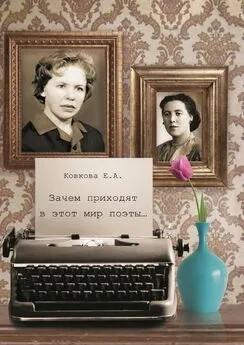Елена Миклашевская - Зачем им столько времен?
- Название:Зачем им столько времен?
- Автор:
- Жанр:
- Издательство:Литагент Ридеро
- Год:неизвестен
- ISBN:9785005033345
- Рейтинг:
- Избранное:Добавить в избранное
-
Отзывы:
-
Ваша оценка:
Елена Миклашевская - Зачем им столько времен? краткое содержание
Зачем им столько времен? - читать онлайн бесплатно ознакомительный отрывок
Интервал:
Закладка:
5. How did he feel when he entered the reading room? How did he feel when he left?
7. «The Adventures of Tom Sawyer» by Mark Twain
Vocabulary: crack – трещина; pour – лить; blame – обвинять; war-whoop – боевой клич; hind legs – задние лапы.
Tenses to use: Present Simple, Past Simple.
Tom (be) worried. Becky Thatcher (stop) going to school. Something bad (happen) to her, he (think). He (not/do) anything for days, nothing (interest) him. Aunt Polly (try) some medicines, but they (not/help).
Once she (hear) of a new medicine, Pain-killer. She (buy) a lot of it and (be) happy to see that Tom (get) better. But Aunt Polly (not/know) that it (not/be) the medicine that (help) the boy. It (be) Tom himself. He (decide) that it (be) time to wake up. When Aunt Polly (give) him Pain-killer, he secretly (pour) it out into the crack in the floor.
One day Tom (be) ready to give the crack his medicine when Peter the cat (come) asking for some.
«Don’t ask for the thing you (not/know), Peter,» (say) Tom, «you really (want) it?»
Peter (show) that yes, yes, very much.
«Make sure.»
Peter (make) sure.
«If you don’t like it, you mustn’t blame me.»
Peter (agree).
Tom (take) a tea spoon and (give) the cat some Pain-killer.
Peter (jump) two metres in the air, then (shout) something like a war-whoop and (start) to run round the room, hitting the chairs and upsetting the flower pots. Then he (stand) on his hind legs and (dance), shouting something that (show) a real happiness.
The moment the cat (jump) out of the window carrying some flower pots with him Aunt Polly (come) into the room. She (stand) still with shock.
«You (give) anything to him?» she (ask).
«No, Auntie.»
But the old lady (see) something under the bed. She (take) it out. Tom (have) nothing to say – it (be) a tea spoon.
«Now, sir, what you (do) for this poor animal?»
«You (be) good to me, Auntie,» Tom (answer), «and I (want) to do something good to Peter, too.»
Answer the questions:
1. Why was Tom worried?
2. How did Aunt Polly try to help him?
3. Why did not Tom need any medicine? What did he do with it?
4. What happened when he gave some Pain-killer to the cat?
5. How did Aunt Polly find out what happened? What did Tom explain to her?
8. «The Adventures of Tom Sawyer» by Mark Twain
Vocabulary: basin – таз; wipe – вытирать; towel – полотенце, take a breath – вдохнуть.
Tenses to use: Present Simple, Past Simple.
It (be) Saturday. The sun (rise) upon the peaceful village. Mary (give) Tom a basin with water and a piece of soap, and he (go) outside and (set) the basin on a little bench. He (put) the soap into the water, then (take) it out and (place) near the basin again. Next, he (pour) the water out on the ground, (go) to the kitchen and (begin) to wipe his face with the towel.
But Mary (take) the towel from him, saying,
«You mustn’t be so bad, Tom. Water (not/hurt) anyone!»
She (fill) the basin again. Tom (stand) over it for a minute, (take) in a big breath and (begin).
He (come) into the kitchen for the second time, his face covered with water and his eyes closed. When he (appear) from the towel, the result (not/be) good, because the clean territory (be) like a mask – his chin, neck and forehead (be) dark with dirt.
Mary (take) him in hand. She (wash) him, (brush) his hair and (get) out his suit. Tom (look) nice, uncomfortable and unhappy. Soon the family (leave) for the Sunday school, a place that Tom (hate) with all his heart.
Answer the questions:
1. How did Tom «wash» his face for the first time?
2. What was the second attempt (попытка) like?
3. What did Mary do in the end?
9. «The Adventures of Tom Sawyer» by Mark Twain
Vocabulary: sermon – проповедь; minister – священник; suffer – страдать; beetle – жук; bite (bit) – кусать; miss – зд. промахнуться; fan – веер; variety – разнообразие.
Tenses to use: Present Simple, Past Simple.
Sunday sermon (be) always a hard time for Tom – he (not/listen) to the minister and he couldn’t look out of the church window, as Aunt Polly (not/let) him take a seat near it.
That Sunday, as usual, there (be) nothing interesting. For a time, Tom (suffer) as he (not/know) what to do. Suddenly he (remember) about the treasure that he (have) in his pocket. He carefully (take) it out. It (be) a large black beetle. Immediately, it (bite) Tom’s finger. Tom (throw) it away, and it (land) between the rows of seats, its legs in the air. Some of the people (begin) to watch it.
At that moment, a poodle (come) into the church. He (be) hot and bored and tired of waiting for his master outside. The poodle (see) the beetle. He (walk) around it, (smell) it from a distance, then (walk) closer and (open) his mouth to catch it, but (miss). He (try) again and again, but with no result. Some faces (go) behind the fans, so that nobody couldn’t see them laughing. Tom (be) happy.
The poodle (get) tired. He (forget) about the beetle and (see) on it. There (be) a shout of pain, and the dog (start) to rush about in the church like a woolen comet. By that time there (be) nobody in the church who (not/laugh).
Tom (go) home feeling happy and thinking that it (be) great to bring some variety to the sermon.
Answer the questions:
1. Why was Sunday sermon a hard time for Tom?
2. Why did he throw the beetle away? Where did it land?
3. Why did the poodle come into the church? Why did the people in the church begin to laugh? What did the poodle do in the end? What was the result? Why did Tom feel happy on his way home?
10. «Three Men in a Boat» by Jerome K. Jerome
Vocabulary: wet – мокрый, branch – ветка, splash – брызгать, плескать; shirt – рубашка, drop – ронять, by accident – случайно.
Tenses to use: Present Simple, Present Continuous, Past Simple
It (be) our first morning on the river. We (look) down at the water. The night before we (want) to get up and jump into the water. But now the water (look) wet and cold. The wind (not/be) warm, too. I (decide) to splash some water on myself. So I (begin) to walk along the branch that (be) above the water. But the branch (break) and the next minute I (be) in the middle of the river with a litre of the Thames inside me.
«It (be) all right?» George (ask).
«Beautiful! Why you (not/want) to come?» But he (not/want) to.
«I (stay) in the boat», he (say).
When I (be) back in the boat, I (be) very cold. I (want) to put on my shirt. By accident, I (drop) it into the water. It (make) me angry, but George (start) laughing.
«Why you (laugh)?» I (cry). I (be) really angry with him. But then I (see) that it (not/be) my shirt. So, I (begin) to laugh, too. «Are you going to get it out?» he (cry) between the shouts of laughter.
At first I couldn’t answer him because I (laugh), too. But in the end I (say), «It (be) not my shirt, it (be) yours!»
Later I (try) to tell him that it (be) very funny, but he (not/agree) with me.
Answer the questions:
1. What were the friends’ plans for their first morning on the river?
2. Why did not they want to jump into the water in the morning?
3. What did the narrator decide to do instead of swimming? What did he begin to do? What happened?
4. What made the narrator angry when he was back in the boat?
5. When did George stop laughing?
11. «The Adventures of Tom Sawyer» by Mark Twain
Vocabulary: fence – забор, bucket – ведро.
Tenses to use: Present Simple, Present Continuous, Past Simple, Past Continuous
Saturday (be) a beautiful day. It (be) summer and there (be) flowers in all gardens. It (be) a day for everybody to be happy.
Tom (come) out of the house with a big bucket of white paint in his hand. He (look) at the fence. It (be) three metres high and thirty metres long. He (put) his brush in the paint and (paint) some of the fence. Then he (put) down his brush and (sit) down. There (be) hours of work in front of him, and he (be) the unhappiest boy in the village. But after 10 minutes Tom (have) an idea.
…Tom (paint) when Joe Harper (come) to the fence.
«I (be) sorry you (not/can) (go) with me to the river, Tom. You must work.»
Tom (say) nothing. He (paint) the fence. He often (stop) and (look) at his work. The brush (move) np and down. At last he (say),
«You (call) this work?»
«Painting the fence? Of course, it (be) work».
«Perhaps, it (be). But I (like) it».
Soon Joe (begin) to get very interested and (say),
«Tom, can I paint a little?»
Some time later, Tom (sit) under the tree (eat) an apple. Joe and other boys who (come) to laugh at Tom (wait) to paint the fence.
In the afternoon Aunt Polly (see) a beautiful white fence. She (be) very pleased. She (take) Tom into the house and (give) him an apple. Tom quickly (take) a second apple and (run) off.
Answer the questions:
1. Why was Tom unhappy when he came out of the house?
2. What did Joe see when he came to the fence?
3. Why did Tom often stop?
4. What did Joe ask Tom some time later?
5. What did Aunt Polly see in the afternoon? How did she feel? What did she do?
12. «Three Men in a Boat» by Jerome K. Jerome
Vocabulary: serious – серьезный, fishing-line – удочка, sail – плыть, pick off – стряхивать.
Tenses to use: Present Simple, Present Continuous, Past Simple, Past Continuous
It (be) very quiet on the river that evening. We (see) only three men. They (sit) in a boat and they (fish). As we (get) nearer, we (see) that they (be) old. They (be) very serious, because they (watch) their fishing-lines very carefully. The sun (go) down and there (be) a red light on the water. It (be) very beautiful and we (feel) that we (sail) in some strange land.
We (not/sail) in some strange land. We (go) into the boat with the three old men in it. At first we (not/understand) it. But then, from the words that we (hear) we (understand) that we (be) near people. We also (understand) that those people (not/be) happy. They (try) to stand up and they (pick) fish off themselves. As they (work), they (shout) bad words about us.
Harris (shout) to them, «I (be) very unhappy to hear that men of your age (use) these bad words! You (must) be pleased that something interesting (happen) to you!»
But the three old men (not/agree) with Harris.
Answer the questions:
1. What was the river like that evening?
2. What were the three men doing on the river? Why were they very serious?
3. What did the friends feel when the sun was doing down?
4. Did the friends sail into «some strange land»? Where did they sail into?
5. What did Harris shout to the men? Why did he say that they must be pleased?
13. «The Adventures of Tom Sawyer» by Mark Twain
Vocabulary: wig – парик; painfully – болезненно; terror – ужас; attic – чердак; rag – тряпка; revenge – месть; claw – коготь; thophy – добыча, трофей.
Tenses to use: Past Simple, Past Continuous.
The schoolmaster’s name (be) Mr Dobbins. He (be) a tall, strong middle-aged man who (wear) a wig on his bald and shiny head. There (be) no pupil in the school who (not/be) afraid of him, because he (hit) the boys very painfully. They (spend) their days in terror and (want) a revenge. At last, they (have) a plan that could work.
Читать дальшеИнтервал:
Закладка:
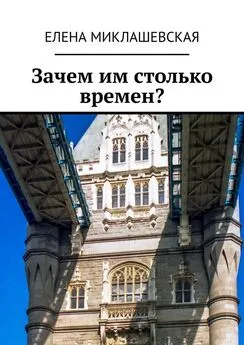

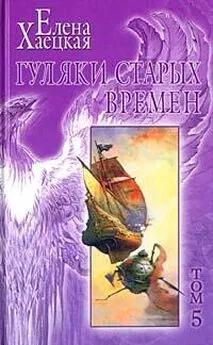
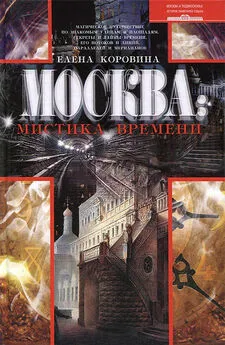
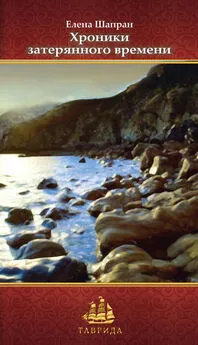
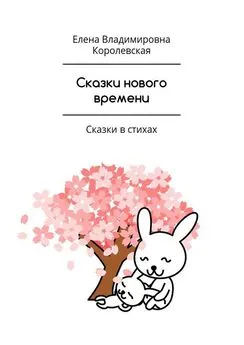
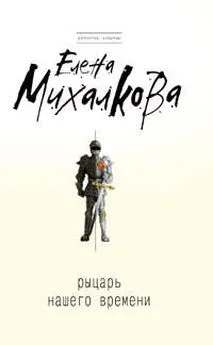
![Елена Гордина - Зачем ты это сделала? [litres с оптимизированной обложкой]](/books/1145711/elena-gordina-zachem-ty-eto-sdelala-litres-s-opti.webp)

